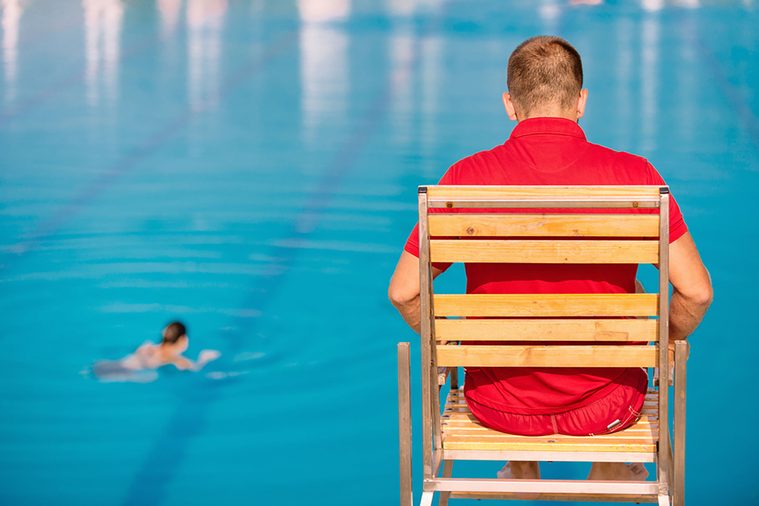
We fall asleep
It’s rare, but it does happen. Staring at the water in the bright sun can be mind-numbing. In my seven years of lifeguarding, I’ve had to discipline two lifeguards who fell asleep on the stand—but to be honest, they weren’t fired. Here are some factors that can make a simple dip in the pool turn dangerous.
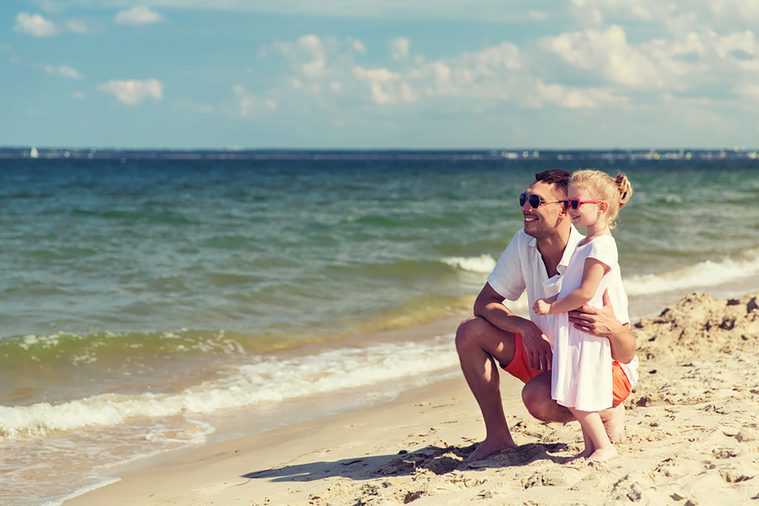
Parents, you need to pay attention too
“The phone is the biggest distraction we see,” says Pete DeQuincy, aquatics manager at East Bay Regional Park District in California. The Consumer Product Safety Commission reported that injuries involving swimming pools climbed 36 percent in children under 5 years old between 2007 and 2010, a time period in which adult smartphone use also skyrocketed. Though the association does not prove that phones were solely responsible, keep the phone down and stay alert to help keep your child safe. The signs of drowning might surprise you: Drowning is a lot more silent than it can look in the movies. About a third of drowning deaths in the United States occur at lifeguarded pools, according to one report. Sitting nearby, looking at your phone, isn’t good enough. A child can drown in the time it takes you to text someone back. These are the things all parents need for a perfect beach day with the kids.
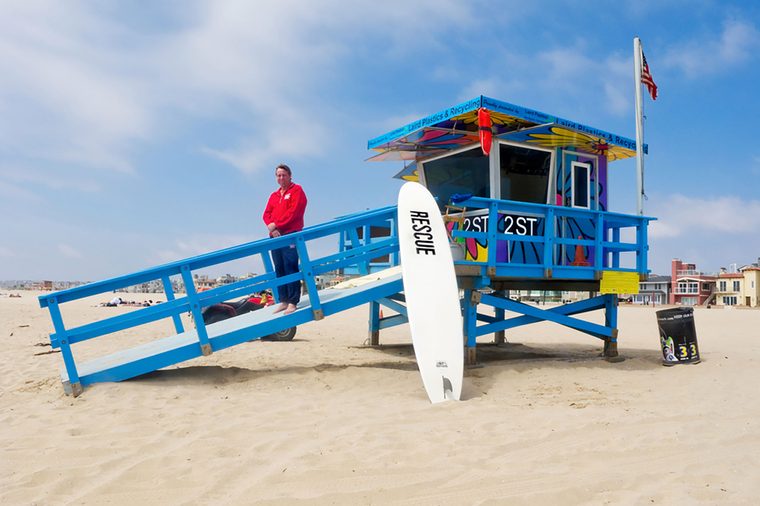
Please, stop talking
We’re supposed to listen politely, but your chitchat is distracting. When I’m on the stand, I’m scanning the area and taking head counts.
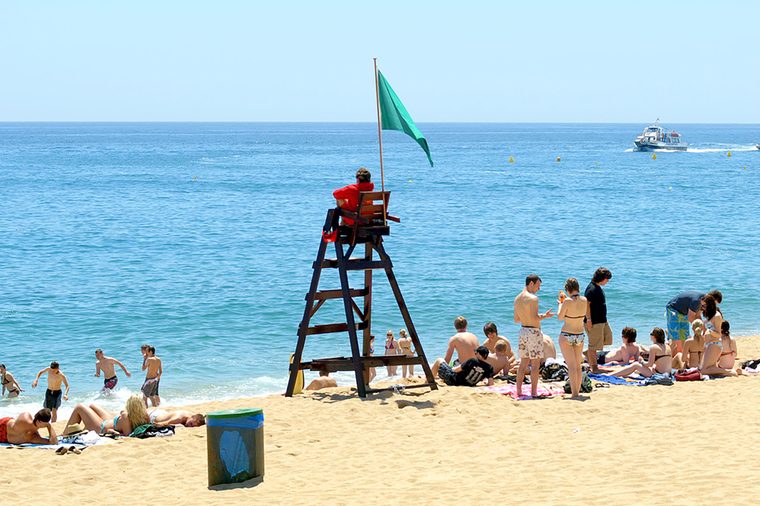
But quick questions are OK
Of course, we’re going to help you with legitimate safety concerns. We know the safest places to swim and which spots to avoid, so feel free to ask. Just don’t expect a 15-minute conversation.
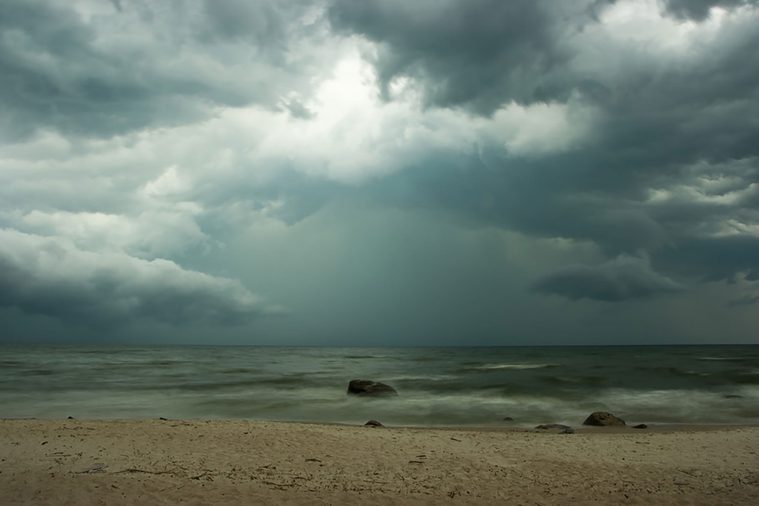
We get excited when we hear thunder
It means we can take a break for 30 minutes. That’s how long the National Lightning Safety Institute recommends keeping swimmers out of the water after the sound of thunder. Even if it might be a truck passing by, if it sounds like thunder, we’re shutting down the pool. Here’s why you should really avoid showering during a thunderstorm, too.
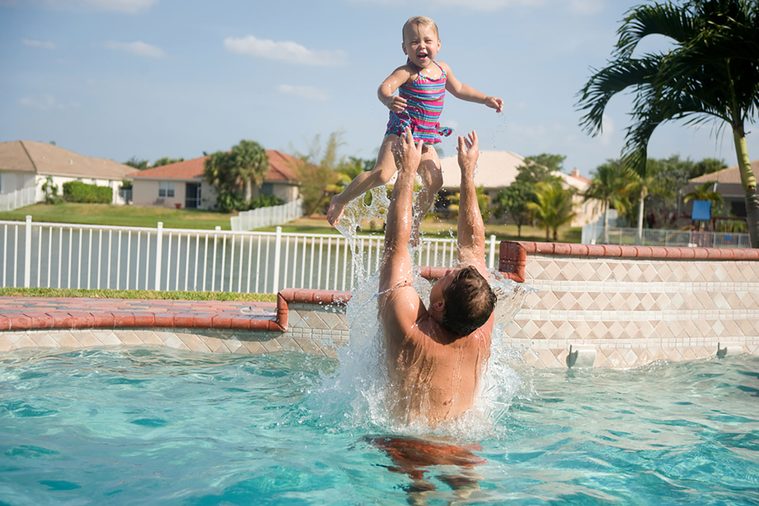
It’s not just kids who break the rules
Some parents refuse to, say, stop throwing their kids in at the shallow end. Please respect pool rules like everyone else. (You might want to find out why peeing in the pool isn’t just gross, it’s actually bad for you.)
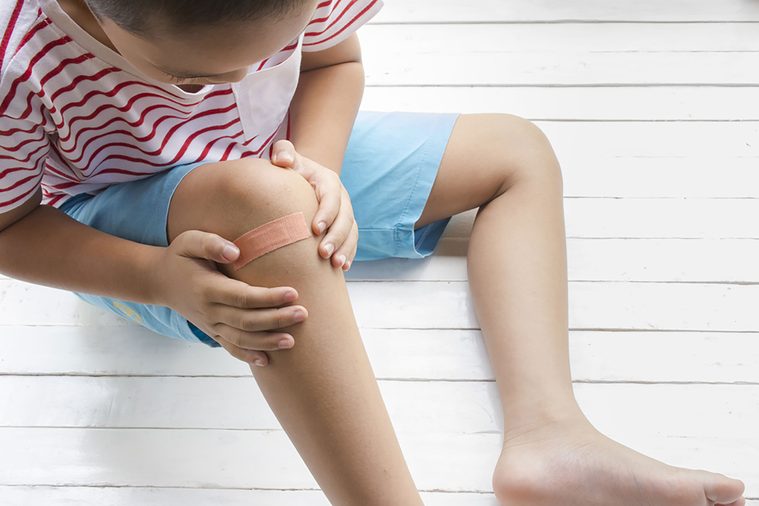
You never know what you’re going to find
When checking the skimmer, the filter that removes debris from the pool, I’ve pulled out hairballs, soggy snacks, bloody Band-Aids, and animals—including frogs, rats, and even a snake once. These are the summer first aid tips you need to know.
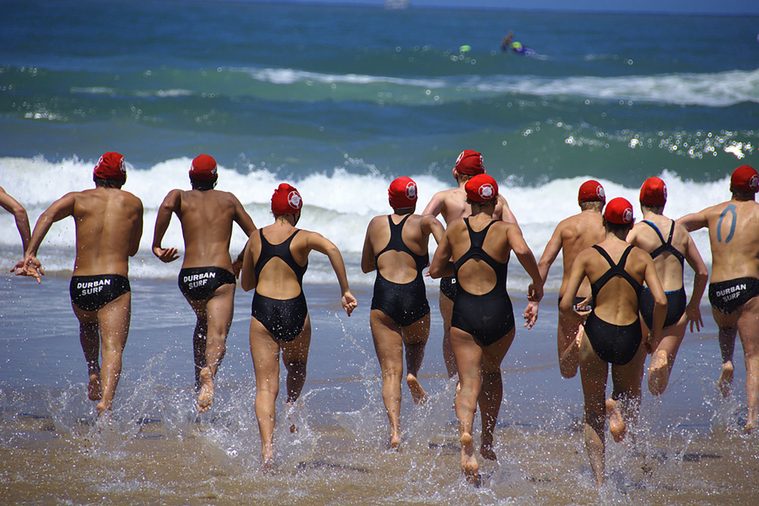
Some of us are very young
The American Red Cross certifies lifeguards as young as 15. I may spend the morning fighting with my mom about letting me go to a party, and then an hour later, I’m responsible for your child’s life.
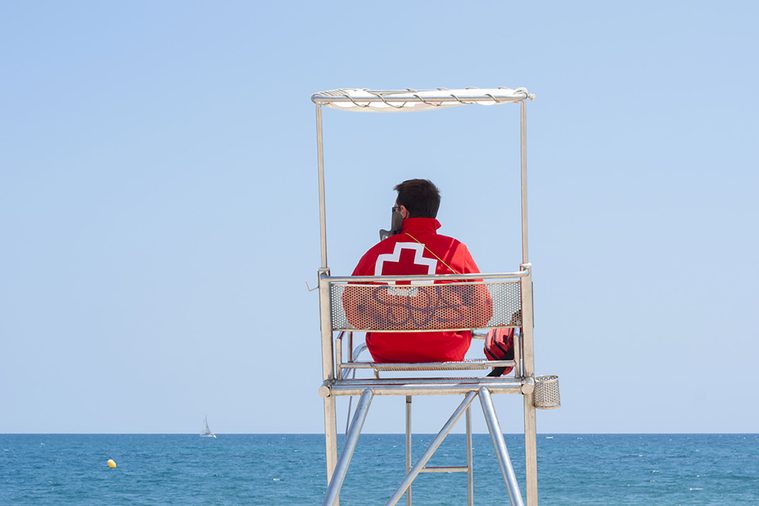
If you can’t see us, we can’t see you
Swimming in an area without a lifeguard makes you five times more likely to drown compared to swimming with one of us around. In fact, the chances of drowning at a beach where there’s a USLA (United States Lifesaving Association) affiliated lifeguard are 1 in 18 million.
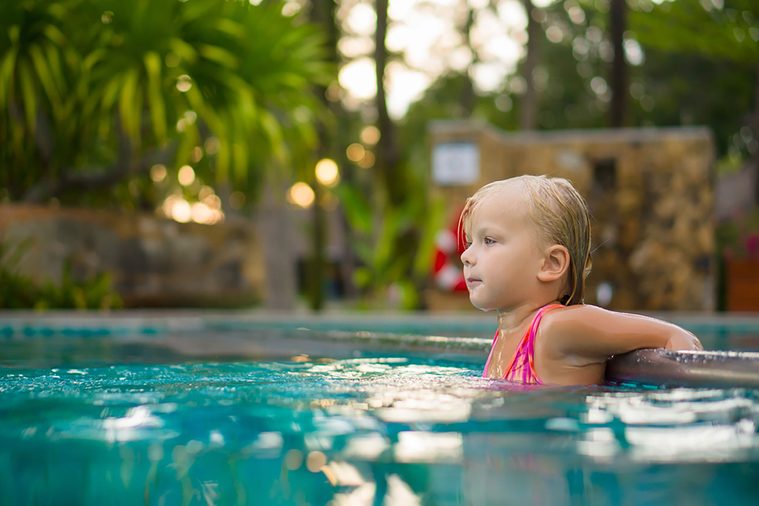
Don’t equate standing with safety
I’ve seen many parents leave their two- and three-year-olds in a foot of water. If they stumble, I’m going to have to go get them. Toddlers often don’t have enough arm strength to lift themselves out of the water. These are other parenting safety mistakes even careful parents can make.
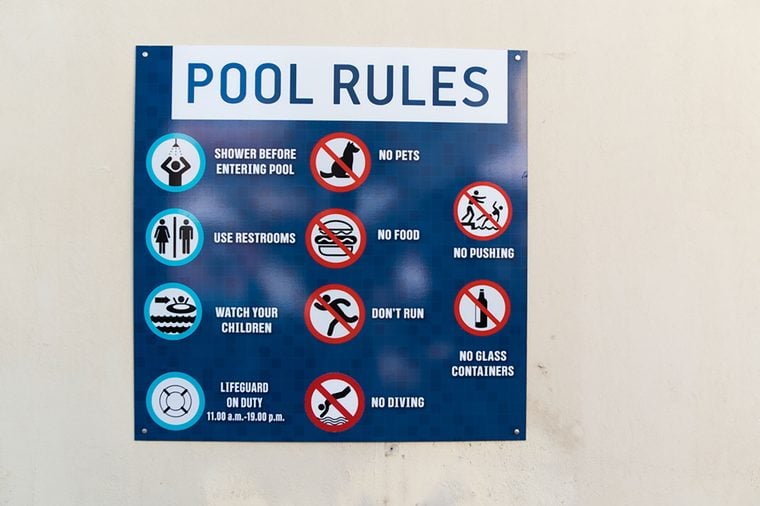
Actually read the rules
We know the signs posted around the water look long and boring, but they do say more than just “No running.” They can tell you whether or not your kids can swim without being accompanied by an adult, what to do if there’s a thunderstorm, and, if you’re on a beach, what our green, yellow, and red warning flags mean. If you follow those rules, that gives us more time to keep an eye on the water.
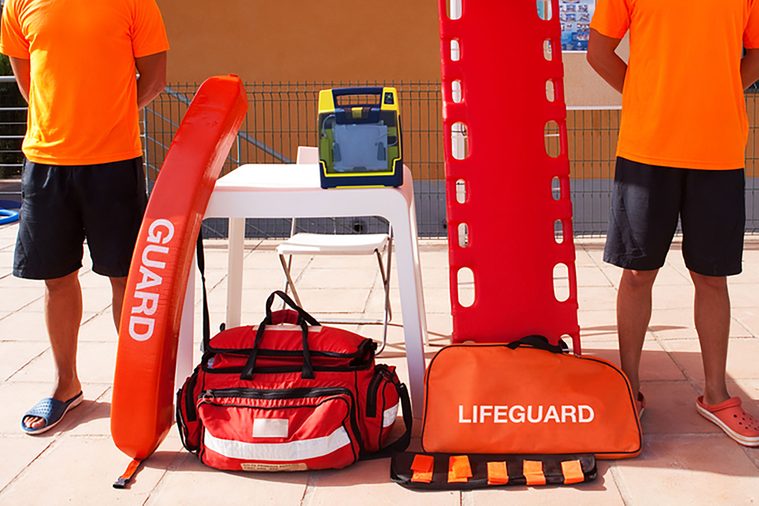
We do more than save people
We also perform first aid for minor cuts and bruises, clean the pool deck, set up the furniture, sell the concessions, sanitize the trash cans, and, yep, clean the bathrooms—all for around $10 an hour.
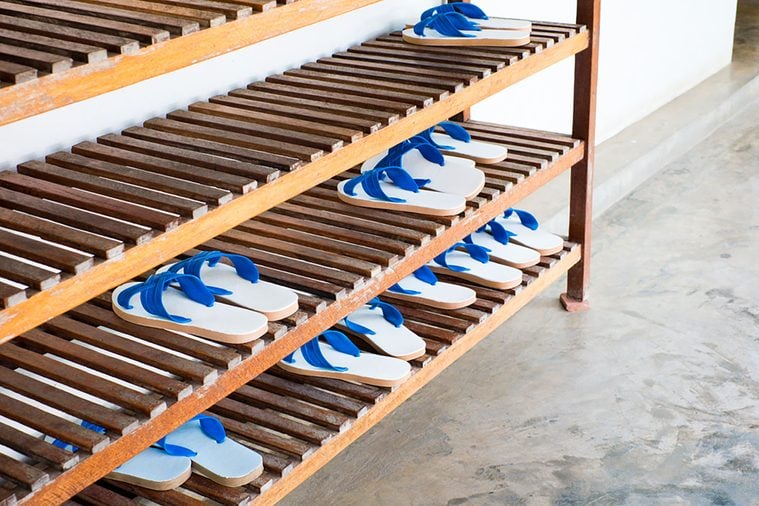
Your bare feet gross us out
The virus that causes plantar warts thrives in moist environments like locker rooms. Always wear shoes when you go into the bathroom.
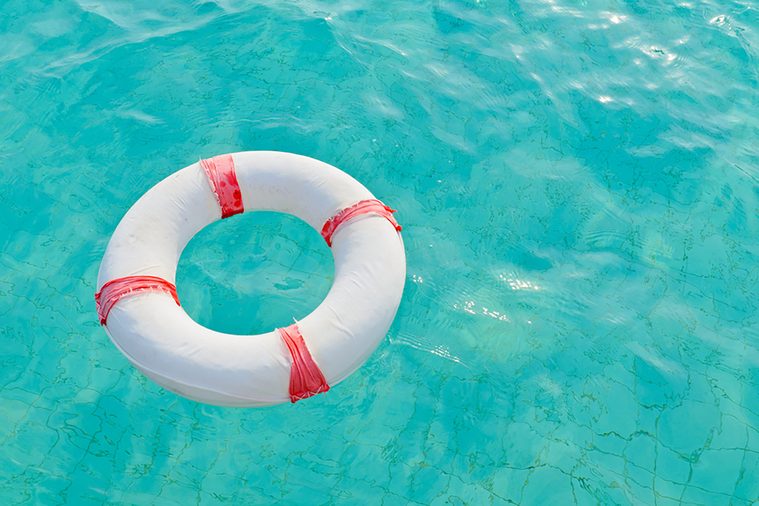
If someone needs help, grab something that floats
A frantic drowning victim will claw and climb on you in an attempt to get out of the water, pushing you under. Instead, throw something buoyant, even if it’s just a cooler, to the victim. These are the life hacks that will help you have a better summer.
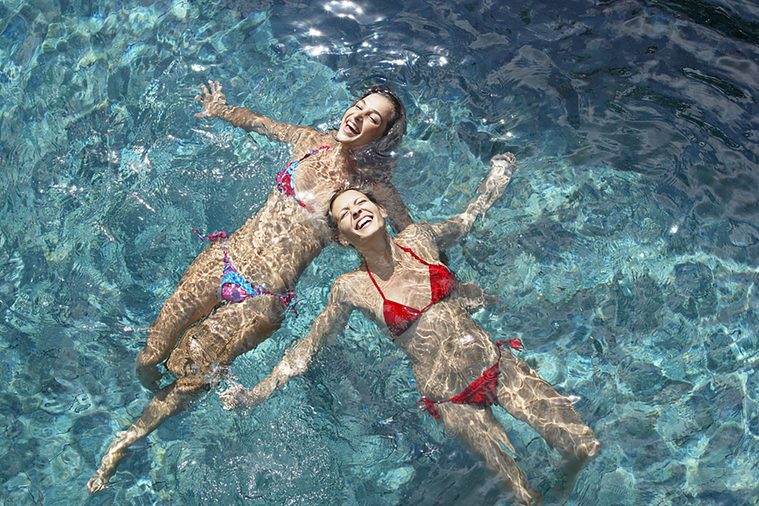
Always swim with a friend
Most drownings occur when someone is swimming alone. If something happens to you in the water, having a second person waving and shouting for us—in the water or on the shore—will get our attention a lot faster.
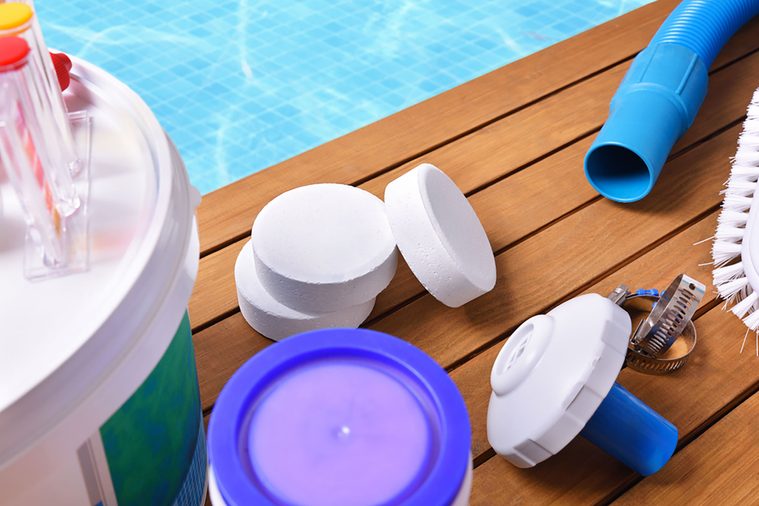
We have access to intense chemicals
At some pools, teenagers are the ones handling chemicals such as hydrochloric acid. One time a lifeguard mixed two chemicals together incorrectly, and it created such dangerous fumes, we had to evacuate the clubhouse. Here are the lifesaving lessons you can learn from poison control centers.
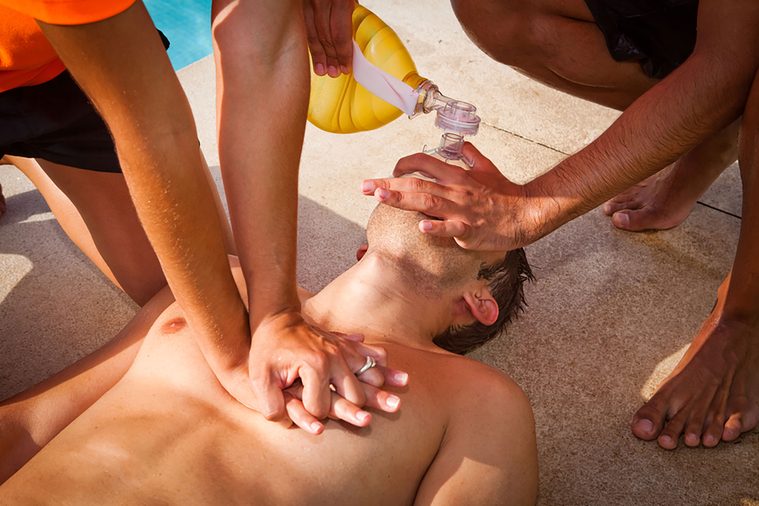
I make a difference
A gentleman once had a stroke and fell unconscious. I had to do CPR until the ambulance arrived. He’s fine now, and I don’t think he even recognizes me, but when I see him back at the pool, I feel really good about what I did.
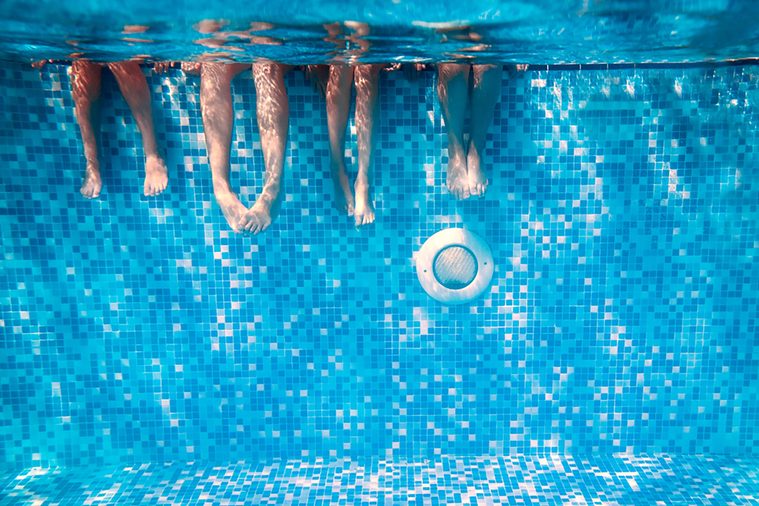
No pool is perfectly clean
Always rinse off after swimming and avoid swallowing the water—it’s seriously gross. When researchers from the Centers for Disease Control and Prevention took samples from 161 public and private pools in 2013, they found that more than half were contaminated with the E. coli bacteria normally found in human feces. Here’s more about the gross reason pools smell the way they do.
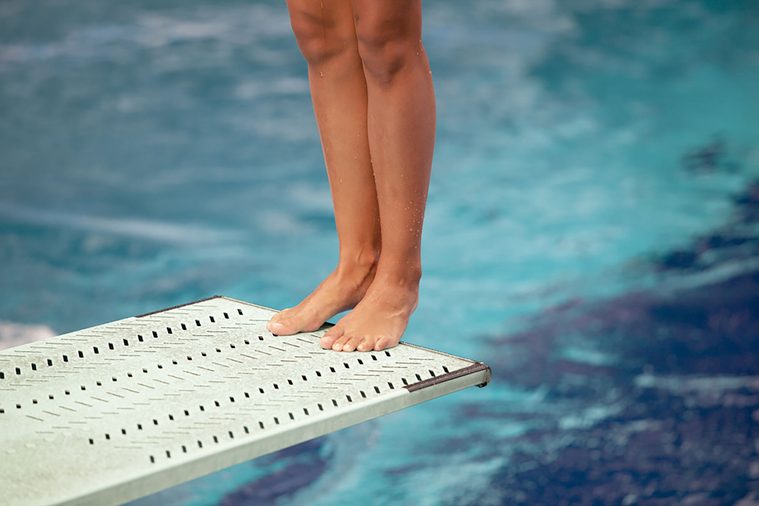
The diving board makes me nervous
There’s a right and wrong way to bounce on a diving board. I’ve seen many people injure themselves from slipping off or jumping up and hitting the board. Bounce once, and jump straight ahead—not to the side. Bouncing twice can cause you to slip or land in shallow water. “Boards were developed for professional divers,” says Tom Gill, public information officer for the United States Lifesaving Association (USLA) and a lifeguard in Virginia Beach, Virginia. “When people use them in smaller pools and double bounce, they can overshoot and go farther than the deep end. It can also make you belly flop.” Jump straight ahead to avoid crashing into the side of the pool. A study in the journal Pediatrics found that about 111,000 diving-related injuries in people under age 19 were treated in emergency rooms from 1990 to 2006. The main cause of injury? Collision with the diving board or platform. To minimize the risk, bounce only once, keep your hands in front of you when you dive, and always jump out (not to the side) of the board.
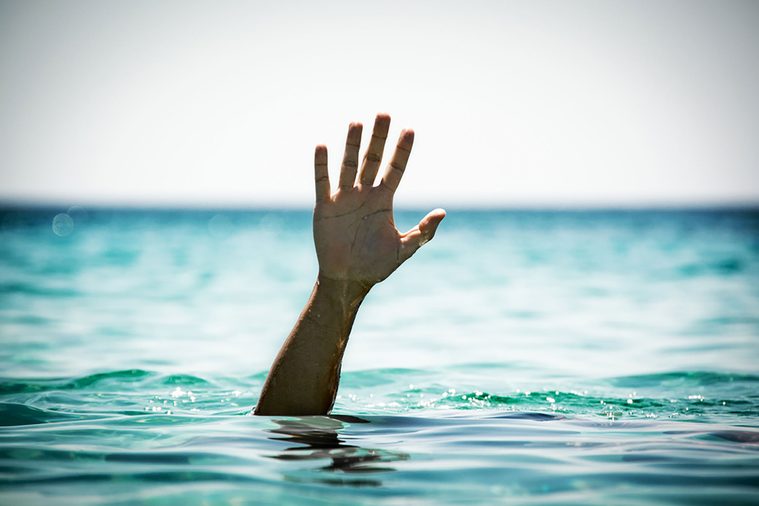
Drowning doesn’t look like what you think it will
Forget what you’ve seen on TV. When someone is in real trouble, they don’t splash, yell, or wave their arms in the air. Most victims are quiet, with their heads barely above the water. These are the signs of someone drowning you need to know.
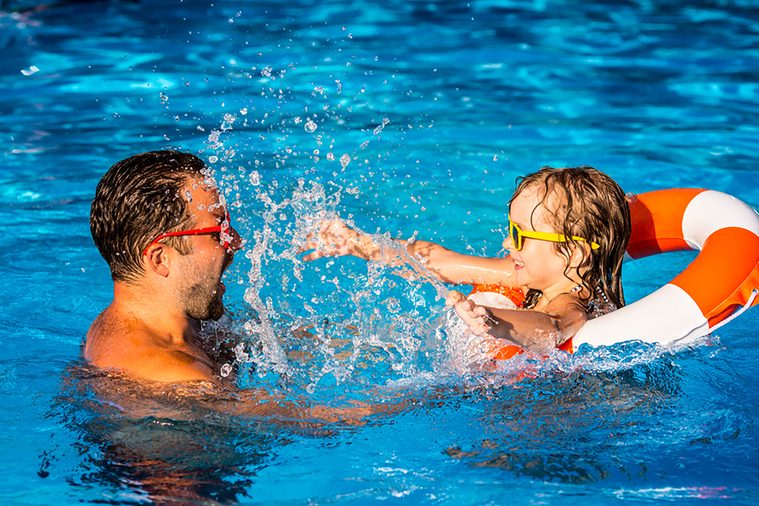
We make up rules
When a child is doing something annoying, like splashing everyone in sight, sometimes I come up with a rule on the spot to make him stop: “No splashing!”
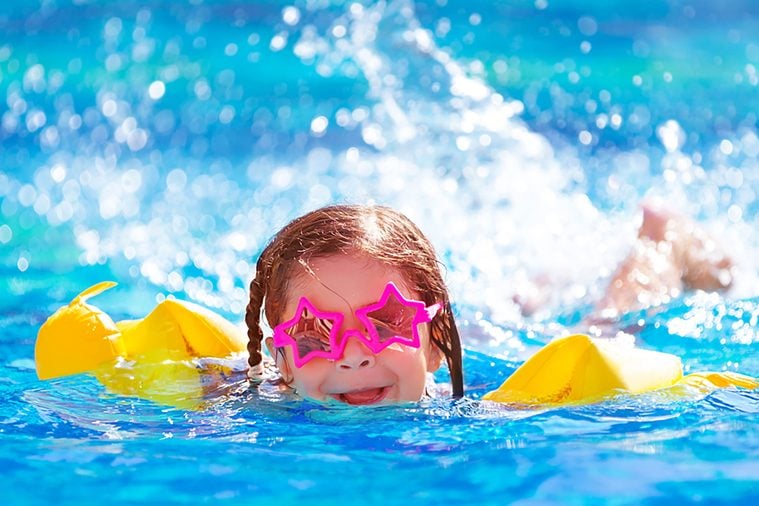
We don’t like floaties
They can come off in a heartbeat. Noodles, water wings, and inner tubes are equally unreliable. A lifeguard’s rule of thumb: Don’t float where you can’t swim. Not only can floaties slip off, they can give children a false sense of confidence in their swimming abilities. For young children or inexperienced swimmers, opt for a more secure life vest or puddle jumper, and check the label to make sure it is U.S. Coast Guard-approved and appropriate for your child’s chest size and weight. When the life jacket is on, there should be no extra space above the arm openings, so it doesn’t cover your child’s face in the water. “We still want parents to be very closely watching their kids whenever they’re in the water,” says Michael Creegan, aquatics director at the YMCA of greater New York. “Beginner swimmers should stay in water that’s up to their chest in depth or shallower, even if they have a life jacket on.”

We take things from Lost and Found
Anything left for more than two weeks is fair game. About half of the towels I use now are from my pool’s Lost and Found.
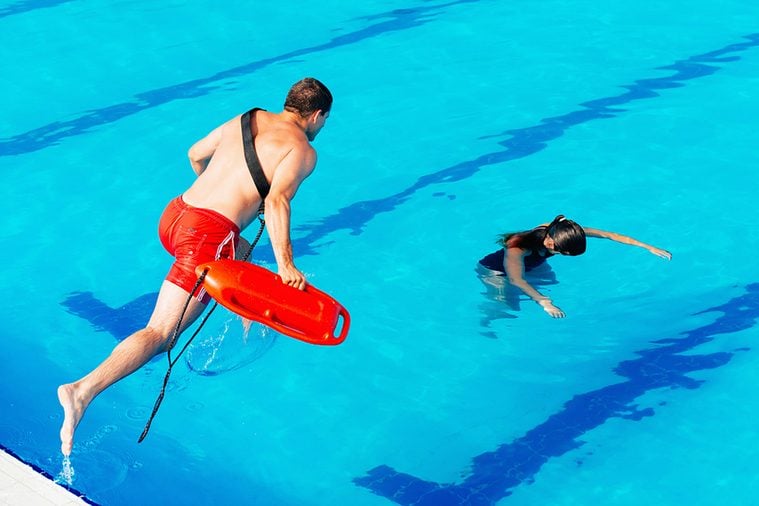
I’ve never actually rescued anyone
And I’m terrified at the thought. Many lifeguards work for years before performing a water rescue.
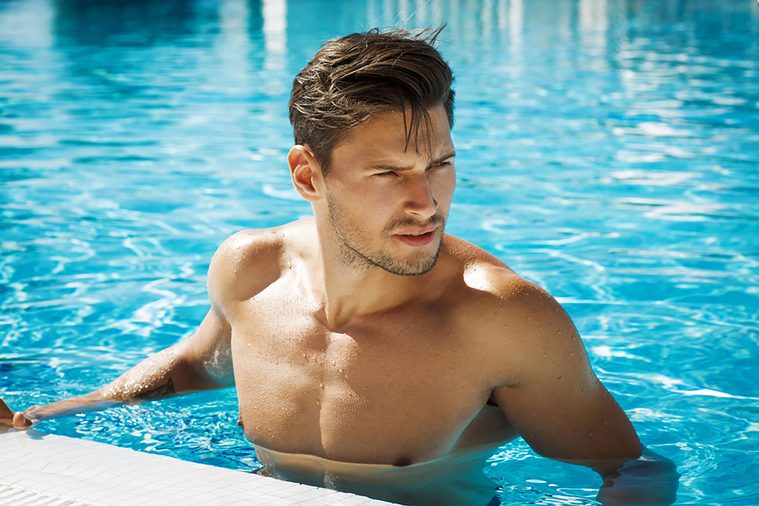
We can never relax around water
Once you’ve been a lifeguard, you will never again be able to relax at a pool or beach. Even when I’m not working, I’m always scanning the pool, and I find myself saying, “Don’t run.” Check out these summer tips that’ll help you beat the heat.
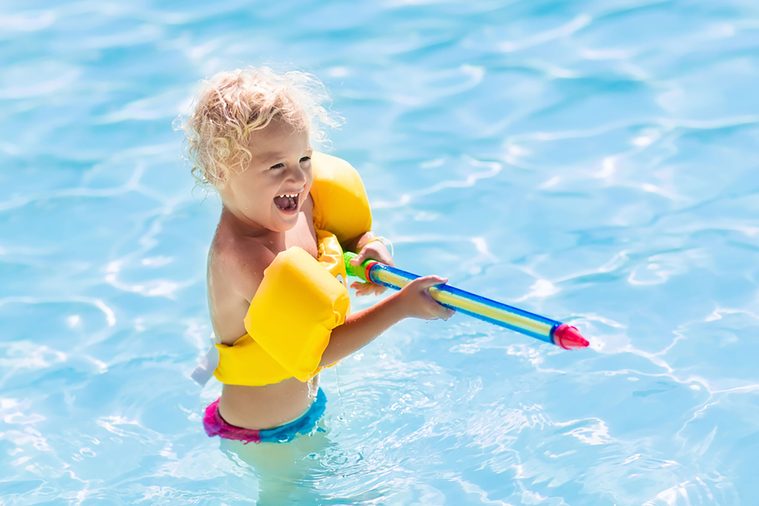
We’re not babysitters
Don’t complain to me if a kid isn’t sharing his ball. Don’t ask me where your kid is or who he’s with. And don’t drop off your child if he’s not old enough to be responsible. My job is to keep people safe.
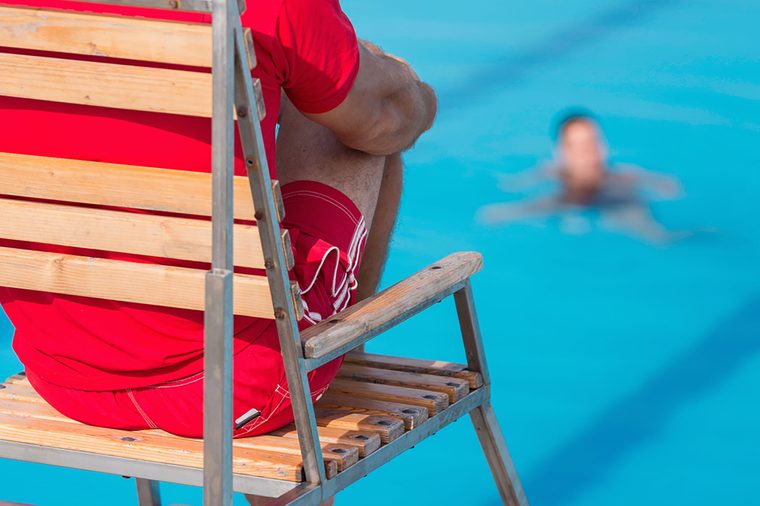
We aren’t just sitting up here working on our tans
I’ve been attentively scanning the area and taking headcounts for 30 minutes. People don’t realize how grueling and stressful it is. I’ve been doing this for years, and I still get tense before I get into the stand.
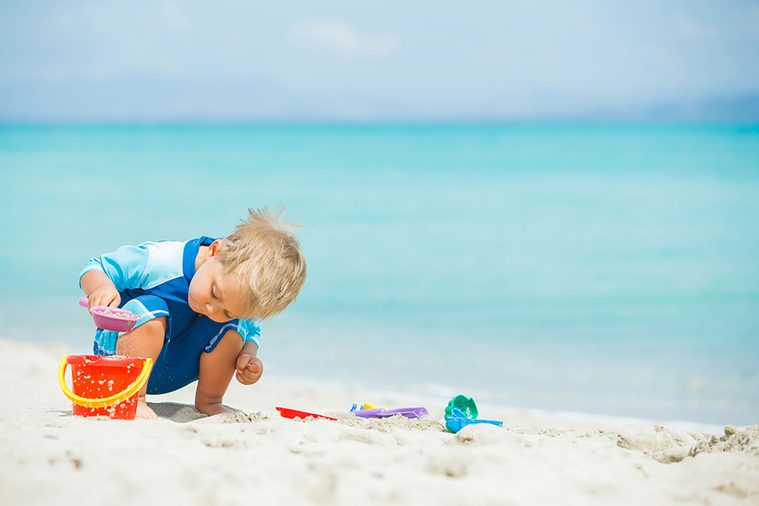
At the beach, finding lost children is a huge part of our job
On a crowded day, you can look away for just a few seconds and lose your child in a mass of people. Point out the lifeguard stand to your kids and tell them to come to us if they get lost.
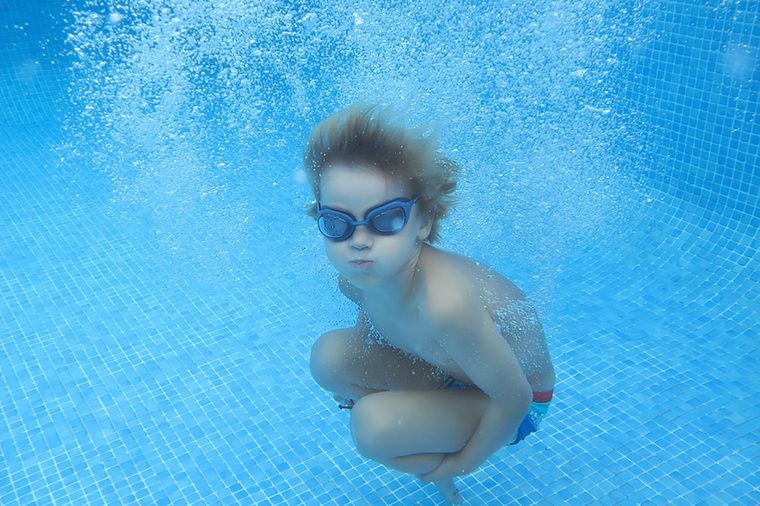
The breath-holding game is not a game
Who can hold their breath longer? It’s an everyday pool dare, but also a risky game. Even accomplished swimmers can black out and die. The Centers for Disease Control (CDC) recently issued a report linking underwater breath-holding to fatal drowning incidents. Shallow-water blackout is loss of consciousness from intentionally restraining from breathing underwater, usually on the shallow end of the pool. “Kids overexert themselves and pass out underwater,” says DeQuincy. Though nationwide incidents are difficult to track, the CDC reports 16 shallow-water blackouts in New York State from 1988 to 2011. Four were fatal.
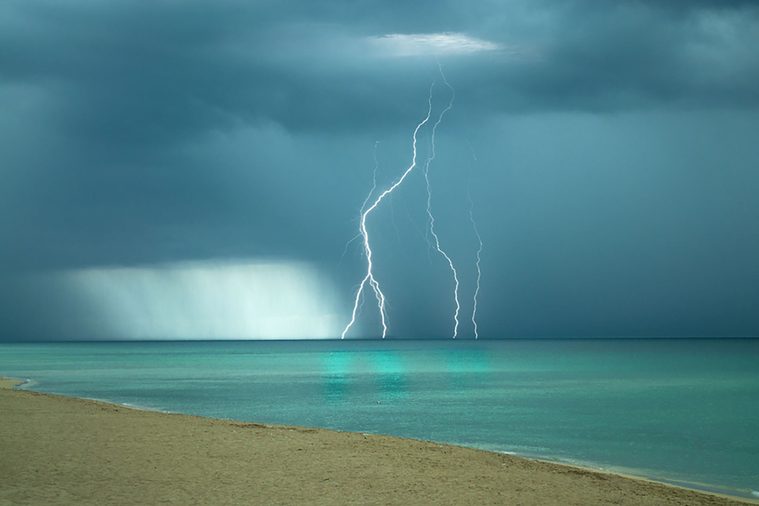
Lightning is a real danger
You’d be amazed by how many people argue with us about getting out of the water when we’ve just seen a huge bolt of lightning strike right up the street. The storm clouds will be rolling in, the sky will be filled with thunder and lightning, and people say, “Do I really have to get out of the pool?” Learn these strange facts about lightning strikes.
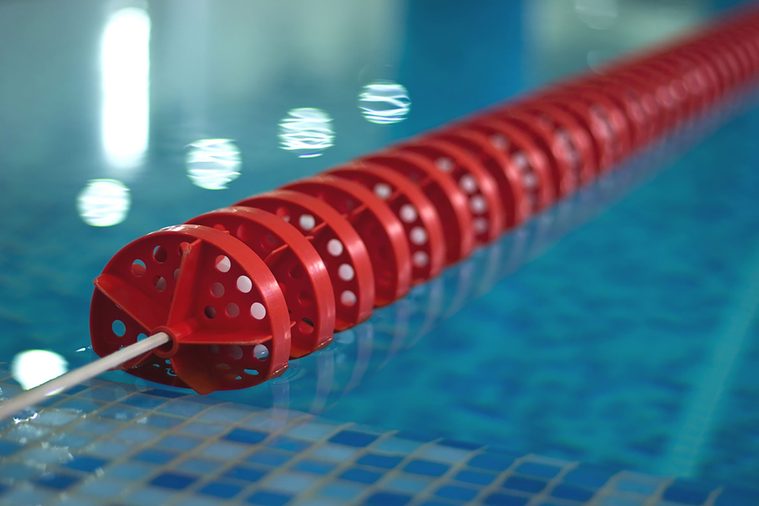
Some rules have nothing to do with your safety
You can’t hang on to the lane dividers because it damages them over time, and replacing them is expensive. You can’t bring your dog to the beach because the city doesn’t want to pay to clean up poop. We don’t make the rules; we’re just here to enforce them, so please don’t argue.
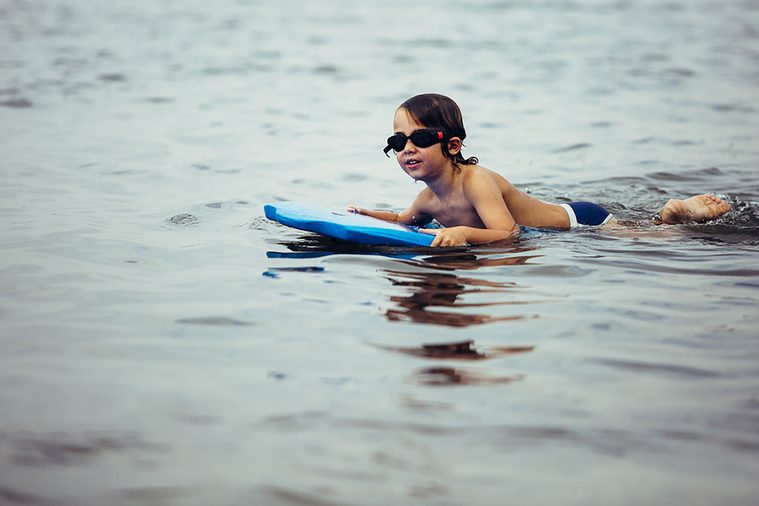
Don’t float where you can’t swim
Even if you Velcro that Boogie Board to your wrist, you can lose it. In fact, it happens so often that we actually use it as a training scenario for our beach lifeguards.

Goldfish should be banned
It’s bad enough that we have to clean up your soggy pizza, spilled ice cream, and empty beer cans. But Goldfish crackers are the worst. Kids are always spilling them everywhere. They get all mushy on the pool deck and are disgusting to clean up.
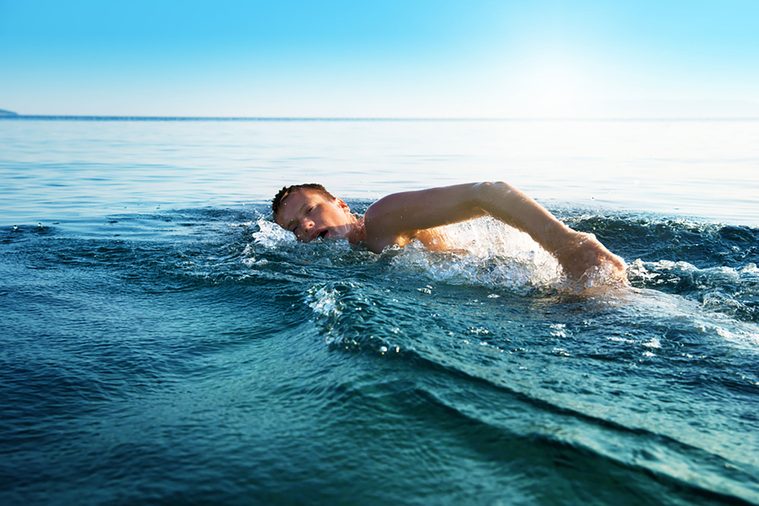
Swim parallel to the beach if you’re caught in a rip current
If you’re having trouble, raise your hand and yell for help. If you can float, you can survive a rip current. This chart shows the best way to escape a rip current.
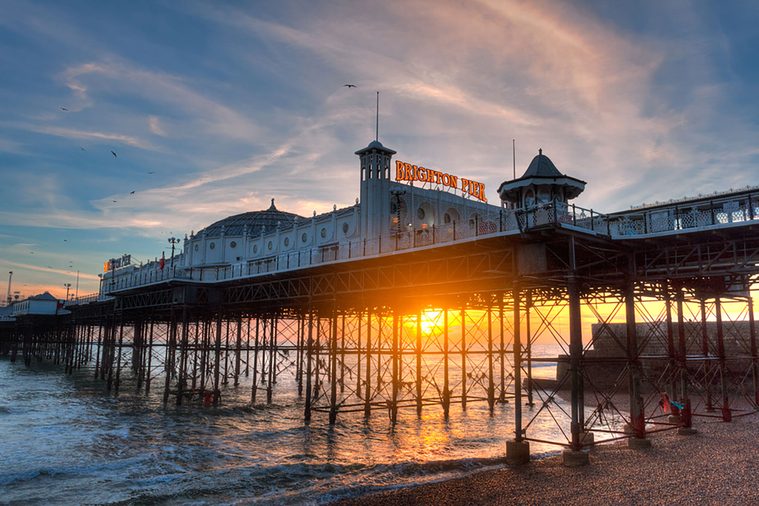
Stay away from piers
Any type of pier or jetty usually has permanent rip currents nearby. Keeping at least 100 feet away from these structures is an easy way to avoid getting swept away by a nasty current.
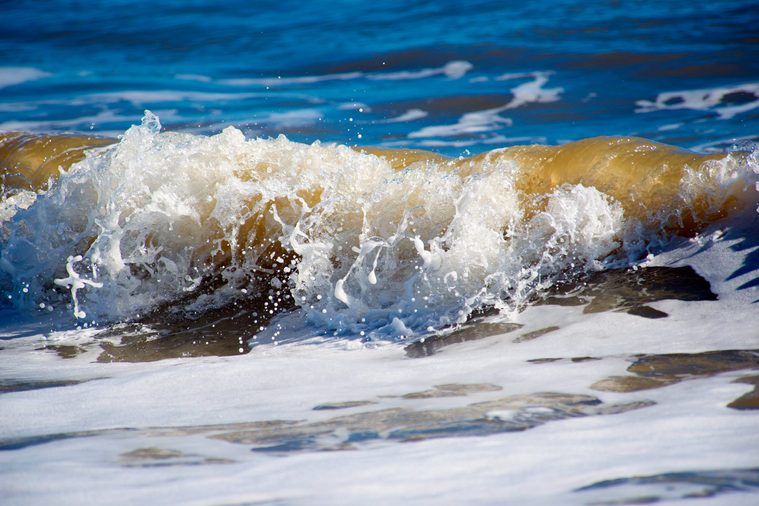
Observe the water at the beach
Murky water is often a sign that there’s a rip current beneath the surface. “A rip current often occurs because there’s a break in the sand bar,” says Gill. “When that sand bar breaks down, it creates the effect of rushing water moving backward. A large area of the water will look darker and sometimes foamy.” A rip current, which can occur at any time (even in knee-deep water), can carry even strong swimmers away from the shore in oceans or large lakes. The USLA estimates that rip currents account for more than 80 percent of surf beach lifeguard rescues. Teach children how to react if they get caught in a rip current. Rip currents don’t pull people under water, but away from shore; drowning occurs when people can’t stay afloat or return to shore because of exhaustion or lack of swimming skills. Remain calm and float until you can escape the current by swimming horizontally to the shoreline.
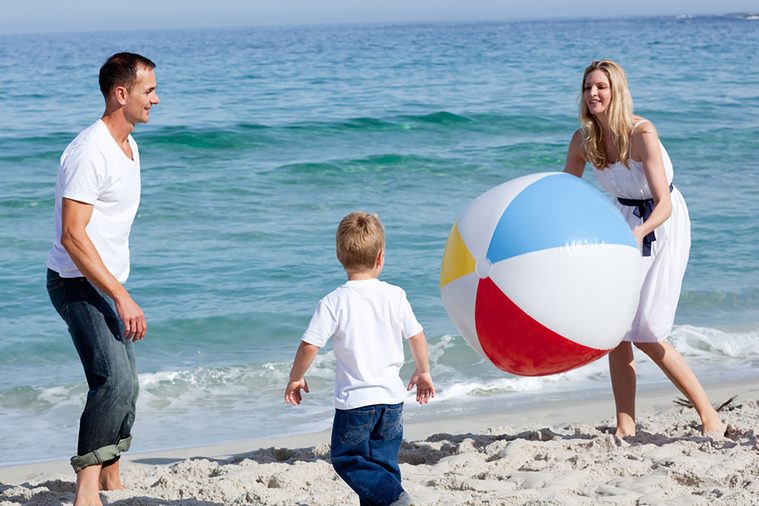
Throw a beach ball, not a tennis ball
When you get pegged in the face with a tennis ball (or even a basketball), it hurts. I buy a pack of beach balls at the beginning of the season. When the kids start playing with a ball I know is going to hurt someone (whose injury I will have to treat), I trade it out for a beach ball.

Swim sober
Sure, a day at the beach with a six-pack by your side sounds like a dream, but it could turn into a nightmare if you’re not careful. Alcohol affects your ability to assess dangerous situations, so you may think you’re able to swim that far or hold your breath for that long without realizing the life-threatening risks. The same goes for swimming in pools.
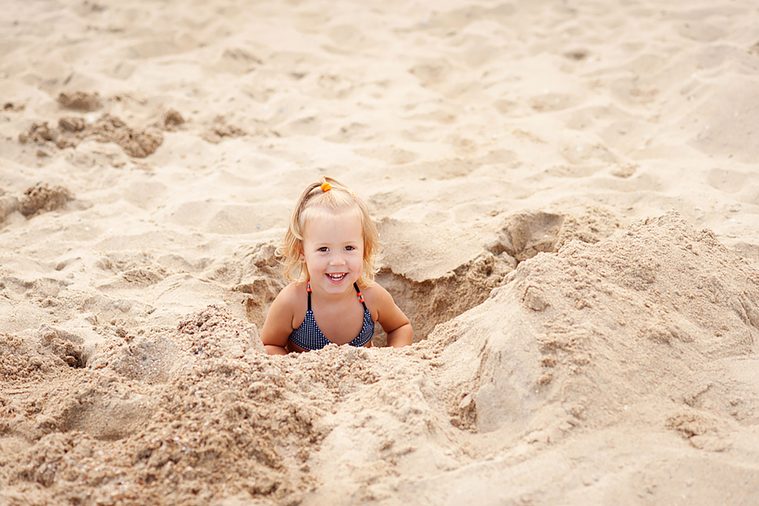
We pay attention when you’re digging in the sand
Kids have suffocated after climbing into a deep hole when the sand collapsed around them. That’s why many beaches have rules that prohibit holes more than knee deep. Here’s a true story about a boy who disappeared into a sand dune.
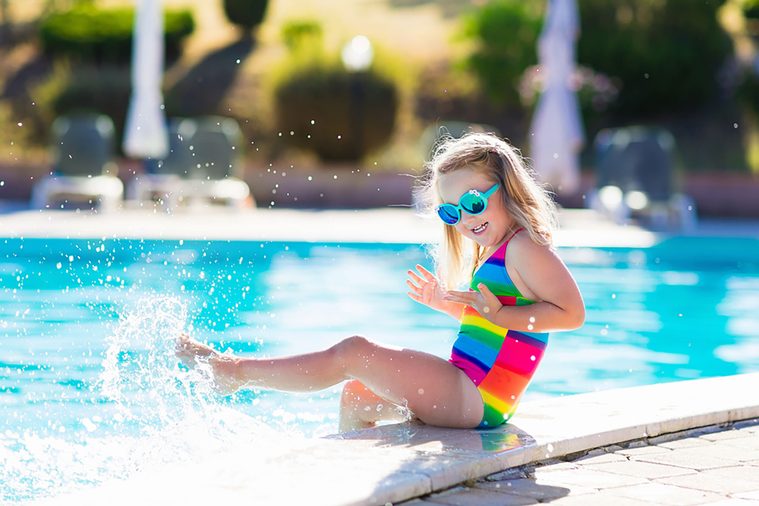
We know who the troublemakers are
By the second week on the job, we’ve sized up everyone at the pool and we know who can swim, who can’t, and who’s most likely to cause trouble. It helps us figure out who to pay the most attention to.
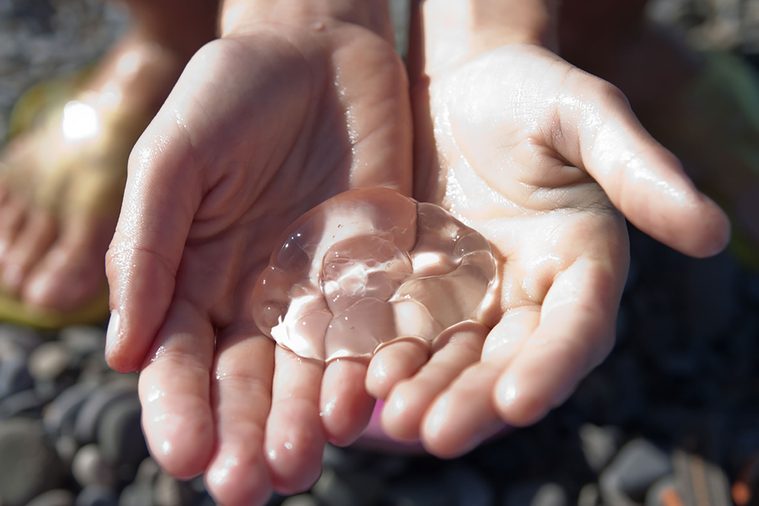
You’re not the only one in the water
Coming into contact with jellyfish and other sea creatures is a very real possibility whenever you go to the beach. They won’t bother you if you don’t bother them, so give them space if you see one. And please, do not try to touch or hold them. Also, that myth about peeing on jellyfish stings is false—here’s what you should really do if you get stung by one.
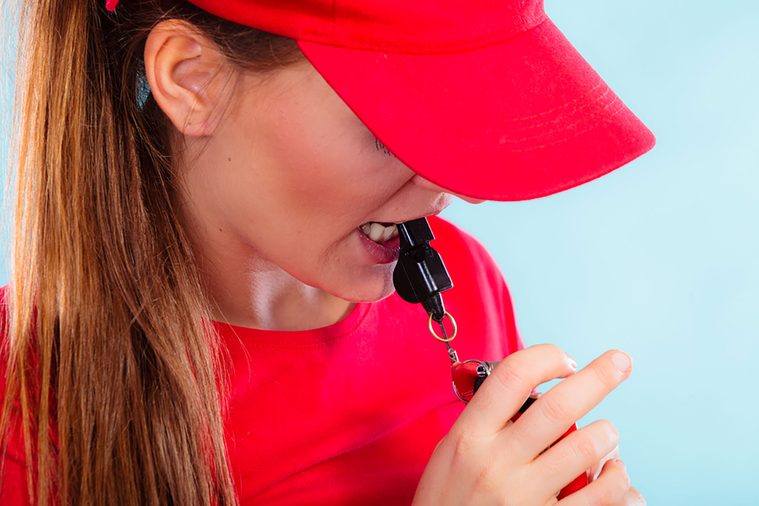
We have secret signals
When we see one of our pool board members walk in, we make a “caw-caw” sound like a crow to alert all the other lifeguards.
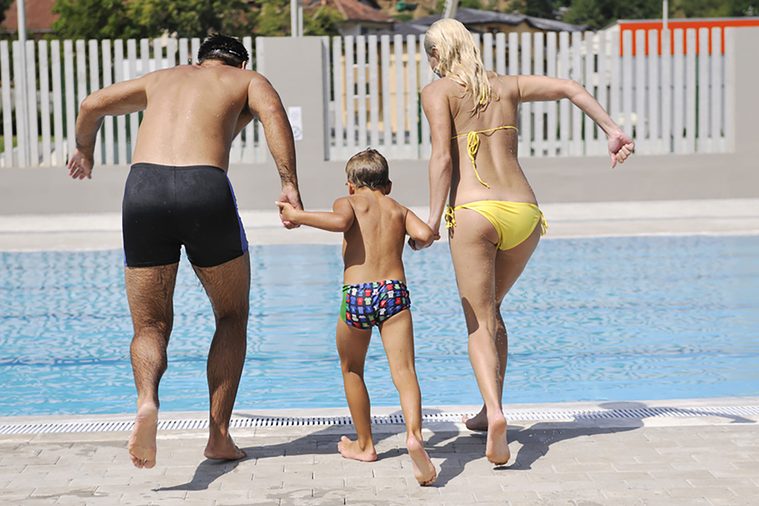
No running! Really, we mean it
Many of the injuries we deal with are caused by people running, skipping, and fooling around outside of the water. It’s wet and slippery on the pool deck.
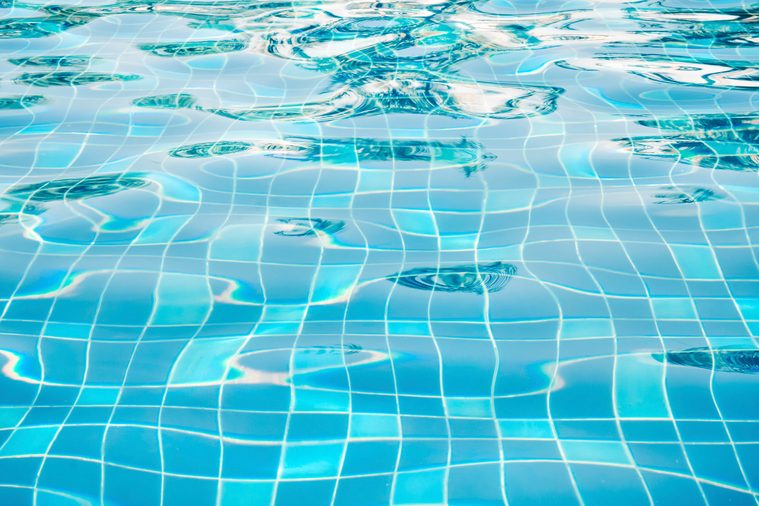
Beware of a ‘clean pool’ smell
“Generally, if a facility has that strong, funky chlorine odor, it’s not actually the chlorine you smell,” says Creegan. “It’s a byproduct that builds up from contact with sweat and urine in the water. In a well-run pool, you’re not going to have that odor.” It’s why locker room signs ask guests to shower before jumping in: Your skin carries natural oils, makeup, sweat, urine, and even fecal matter. All of these bodily elements contain nitrogen, which mixes with the pool’s chlorine and forms chemical irritants that give off that “pool” smell. These irritants may trigger asthma attacks and skin irritation in some people. These are the ways your pool might be making you sick.
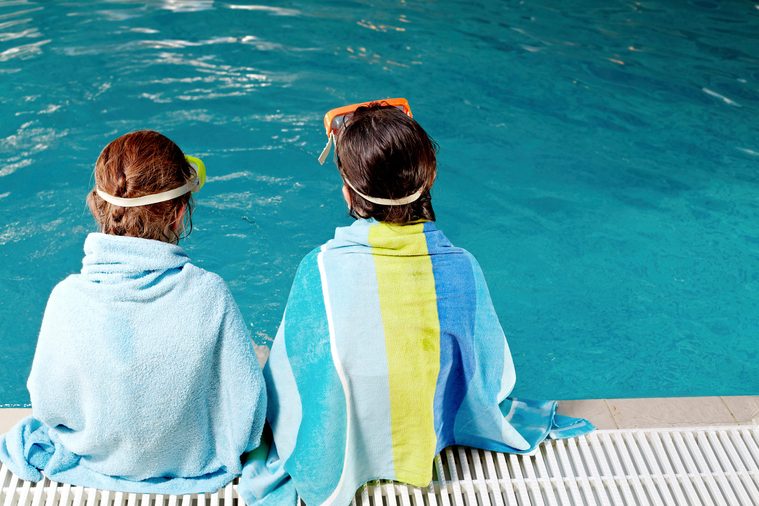
Treat swimming like a soccer tournament
Swimming can be as exhausting as any other sport. Have your children take breaks every two hours to rest, reapply sunscreen, and have a snack. (Contrary to common belief, lifeguards say it’s perfectly safe to swim after eating). Avoid junk food at the concession stand, and instead pack snacks that you would take to a soccer game, such as fruit, trail mix, and sports drinks with electrolytes. Here’s how to avoid common summer workout dangers.
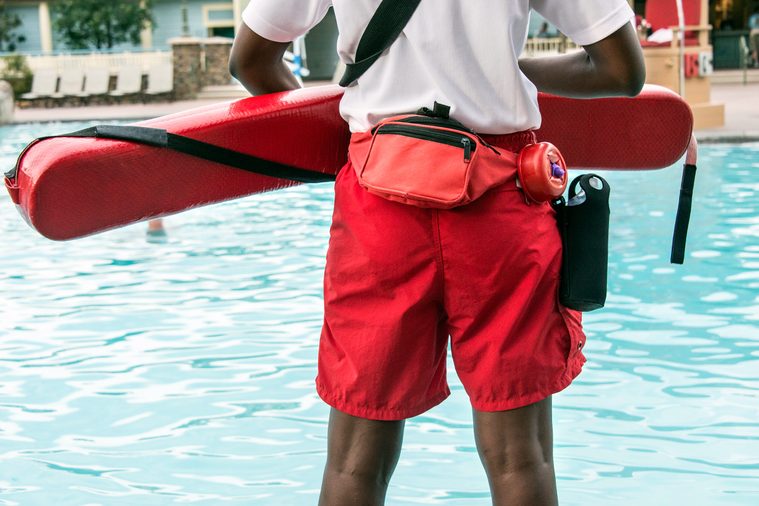
Don’t be afraid to ask
If you have a safety-related question, ask a lifeguard. But don’t be offended when he or she doesn’t make eye contact with you. “We may not look you in the eye because we’re watching the water,” says Gill. “Come to the front of the stand, rather than the side, so we can have a conversation while keeping an eye out.” Even more importantly, remember to always swim near an attended lifeguard post. There’s a one in 18 million chance of drowning on a beach protected by a lifeguard, according to the USLA. Next, check out these beach safety tips that might just save your life.
Sources: Lifeguards in Atlanta, Ga.; Philadelphia, Pa.; Charlotte, N.C.; Grace Witsil, a former lifeguard in Chapel Hill, N.C.; Thomas G. Gill, a Virginia Beach lifeguard and spokesman for the United States Lifesaving Association; Pete DeQuincy, aquatics manager at East Bay Regional Park District in California; Michael Creegan, aquatics director at the YMCA of greater New York; usla.org; redcross.org